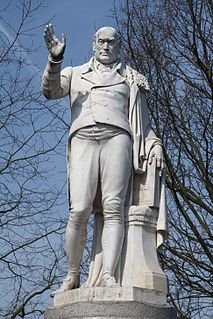A Quote by Carter G. Woodson
Those who have no record of what their forebears have accomplished lose the inspiration which comes from the teaching of biography and history.
Quote Topics
Related Quotes
We are at war with the most dangerous enemy that has ever faced mankind in his long climb from the swamp to the stars, and it has been said if we lose that war, and in so doing lose this way of freedom of ours, history will record with the greatest astonishment that those who had the most to lose did the least to prevent its happening.
If, in schools, we keep teaching that history is divided into American history and Chinese history and Russian history and Australian history, we're teaching kids that they are divided into tribes. And we're failing to teach them that we also, as human beings, share problems that we need to work together with.
When you read a history or biography you are entitled to imagine that it is as accurate as the authors can make it. That research has gone into it and we say "This is a history of the civil war, this is a biography of Lincoln" whatever. But you don't make any such supposition when you say "This is a historical novel."
Biography always has fulfiled this role. Robinson Crusoe is a biography, as is Tom Jones. You can go through the whole range of the novel, and you will find it is biography. The only difference between one example and the other is that sometimes it's a partial biography and sometimes it's a total biography. Clarissa, for example, is a partial biography of Clarissa and a partial biography of Lovelace. In other words, it doesn't follow Lovelace from when he is in the cradle, though it takes him to the grave.
History without the history of science, to alter slightly an apothegm of Lord Bacon, resembles a statue of Polyphemus without his eye-that very feature being left out which most marks the spirit and life of the person. My own thesis is complementary: science taught ... without a sense of history is robbed of those very qualities that make it worth teaching to the student of the humanities and the social sciences.








































